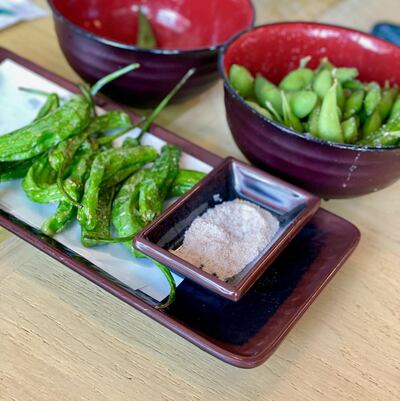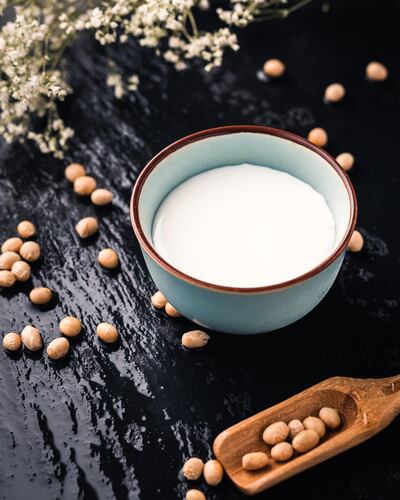It’s safe to say soya has a bad reputation. But, as with most nutrition-based rumours, this is a rather recent phenomenon.
After all, the ingredient has been consumed as part of many traditional Asian diets for centuries, and yet only became a staple in western lifestyles a few decades ago.
Since then, products derived from the humble plant-based protein have been put under a magnifying glass.
Where did it all come from?
It is all said to have started in the 1990s, when the soya bean, a nutrient-packed species of legume native to East Asia, was beginning to be popularised around the world as a health food, with the ability to fight the likes of heart disease, obesity and cancer. This was because people in Asian populations had significantly lower incidences of these diseases than those in the US.
Then researchers started digging, and studies found soya to contain isoflavones, which have oestrogenic properties, and have been said to promote the growth of some cancer cells, particularly breast cancer, as well as impair female fertility and thyroid function.
In one 1999 study, for example, researchers implanted human breast cancer cells into mice, which were then fed isoflavones, and they found these to enhance tumour growth.
But then there were other studies, which discovered soya consumption could actually reduce the risk of some cancers, such as the gastrointestinal kinds, as well as help women deal with menopause symptoms and lower high cholesterol levels.
In 2010, a review of more than 100 studies showed that such experiments didn’t actually show a significant increased risk of breast cancers at all, which is the one disease soya is most commonly linked to in mainstream media today.
So what is the truth?
With all these conflicting studies, you can begin to see how soya products have become the subject of mass dietary confusion. So what’s the answer? Should we ditch soya altogether?
As with most things in the world of nutrition, the solution is not that simple.
“The controversial little soya bean has quite an unfounded reputation, despite there being no airtight evidence to support or discredit its nutritional value to date,” says Jo Owen, a holistic health and nutrition coach in Dubai, and founder of Nourish, Flourish and Fly.
She cites the breast cancer debate, but adds that soya-based food sources are not consumed in large enough amounts to cause the disease, and says they may in fact prevent it in some cases.
“But not all soya is created equally and it depends on the amount of processing that has taken place. For example, highly processed items [she calls them ‘Frankenfoods’] to avoid would be soya cheeses, yoghurt, cereals, protein bars and imitation meats.”
On the other hand, she says, the more organic, traditional, fermented forms, such as miso and tempeh, plus less processed soya milk, edamame and tofu, are better, healthier choices.
Avoid genetically modified products at all costs, she adds.
Rauan Alashkar, a dietician at Medcare Hospital in Dubai, agrees with this. “Avoid highly processed grocery products,” she advises. This includes those containing soya protein isolates, which are found in cereals, protein bars and other snacks. “[They] may contain more soya isoflavones.”
Foods she encourages people to eat in moderation are edamame, soya milk, tofu, miso and soya nuts. These have been found to actually have health benefits, she says. “Soya consumption may slightly reduce risk for gastrointestinal cancers and have protective effects in prostates. Also, soya could help lower levels of bad cholesterol.”
Owen says the fermented products also contain probiotics, which can contribute to a healthy and balanced microbiome.
That's not forgetting that soya is also packed with protein, unsaturated fats, fibre, plus a number of great vitamins, minerals and plant sterols.
There are much worse foods we could be eating, says Owen. This includes “any highly processed foods that are low in nutrient density and contain preservatives, unhealthy fats, sodium and added sugar,” she says. “But these can be soya, too, so choose carefully.”
Alashkar names sugary drinks, sweetened cereals, fried foods and potato chips.
“If you are looking to reduce your saturated fat intake and up your fibre intake, plant foods as a whole would be better for your heart,” adds Owen.
Who should avoid soya?
There are, however, certain people who should avoid soya products altogether – namely anyone who has been diagnosed with oestrogen receptor-positive breast cancer or has thyroid issues, says Alashkar.
Owen adds: “Anyone with a soya allergy and hypothyroid people with low iodine. Iodine levels can be increased by consuming sea veggies, seafood, grains, dairy and iodised salt.”
So why is that?
One of the reasons people can’t agree on soya, is because of the way we individually react to isoflavone. This either acts like an oestrogen in the body – or it doesn’t. In other words, the chemical compound either binds to the alpha oestrogen receptor in our bodies, which therefore increases a tumour’s growth rate, or it latches on to the beta receptor, which has the complete opposite effect.
Overall, it is said to actually prefer linking to beta receptors, thus more likely reducing potential cancer risk.
Some studies have shown it could make a difference as to when you started eating soya, too. For instance, generally speaking, people in Asia start consuming the foodstuff in the womb, while more commonly in the West they often won’t have tried it until later in life.
Other research, which focused on the impacts soya can have on menopause symptoms, also link the benefits to a woman’s ability to produce equol, a bacteria produced in the intestines after eating the ingredient.
The other thing to remember is that some – perhaps even all – of these health benefits might not be directly linked to the consumption of soya per se, but might have more to do with the fact that people who eat more soya are often more likely to have a diet lower in unhealthier foods overall.
Soya-based products, which are mostly low in saturated fat, usually replace foods that are higher in the bad fats, such as meat and dairy. So any reduced health risks could be linked to their generally healthier lifestyle choices.
What’s our verdict?
“You can go ahead and eat soy daily and feel good about it,” says Alashkar. “Just be sure that you are consuming an appropriate amount of lesser processed soy foods.”
Owen’s views on the matter are similar. “As with anything, don’t go overboard, but I would happily consume organic, traditional forms of soy as an alternative to processed animal protein two or three times a week,” she says.
“Soy is a nutrient-dense source of complete plant protein that is neither as amazing or bad for you as stated all over the internet.”
Now go and enjoy that soy latte in peace.








